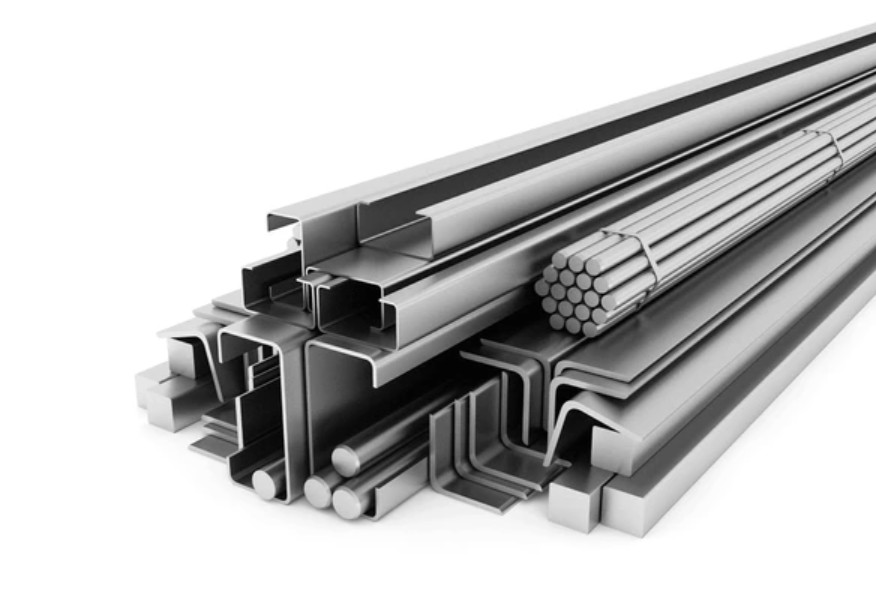What Metals Are Magnetic? Guide for Engineers & Fabricators
The primary metals that are magnetic are iron, nickel, and cobalt, along with many of their alloys such as steel. These are called ferromagnetic metals because their atomic structure allows strong attraction to magnets. Other metals like aluminium, copper, and gold are not magnetic.
What Makes a Metal Magnetic?
The magnetism of a metal depends on its electron structure.
- Ferromagnetic metals (iron, cobalt, nickel) have unpaired electrons that align and create strong magnetic fields.
- Paramagnetic metals (aluminium, magnesium, platinum) show only very weak attraction to magnets, often negligible in practical use.
- Diamagnetic metals (copper, gold, silver, lead) are not magnetic at all and may even repel magnets slightly.
In fabrication projects, knowing whether a material is ferromagnetic or not is crucial, especially for clamping, machining, and structural applications.
Types of Metals That Are Magnetic
The most common magnetic metals used in engineering and manufacturing include:
- Iron (Fe): The strongest and most widely used magnetic metal.
- Cobalt (Co): Highly magnetic, often used in specialized alloys.
- Nickel (Ni): Magnetic and resistant to corrosion, often used in plating and electronics.
- Steel (alloys): Depending on carbon content and alloying elements, steel may or may not be magnetic.
For example, in Steel Fabrication or Aluminium Sheet Fabrication, engineers carefully select the right metal depending on whether magnetism is required for the application.

Is Stainless Steel Magnetic?
Not all stainless steels are magnetic. Austenitic stainless steels (e.g. 304, 316) are generally non-magnetic due to high nickel content, while ferritic and martensitic stainless steels (e.g. 410, 430) are magnetic because of their higher iron content and lower nickel.
This distinction is critical in industries like CNC Machining Metal Fabrication, where the wrong choice of stainless steel could affect performance, welding, or finishing.
Everyday Examples of Magnetic Metals
Magnetic metals aren’t just for factories, they’re part of our daily lives in Singapore:
- Public transport: MRT train systems rely on steel rails and magnetic braking systems.
- Household appliances: Motors, refrigerator doors, speakers, and washing machines use magnetic metals.
- Aerospace & marine engineering: High-strength steel alloys provide durability and magnetic responsiveness.
- Medical technology: MRI machines use superconducting magnets (not ferromagnetic metals, but an advanced magnetic field application).
Why Magnetism Matters in Fabrication
For a Singapore-based metal fabrication company, understanding magnetic properties ensures better decision-making in:
- Precision machining: In CNC Machining, magnetic vs. non-magnetic metals affect cutting speed, clamping, and tool wear.
- Material selection: Non-magnetic metals like aluminium or copper are chosen when electrical conductivity or non-magnetic properties are needed.
- Assembly and welding: Magnetic steels behave differently during welding compared to non-magnetic grades.
- Advanced applications: In 3D Printing and Plastic Injection Molding, magnetic components or inserts may be embedded for functionality.
Conclusion
In summary, ferromagnetic metals such as iron, cobalt, nickel, and many types of steel are strongly attracted to magnets, while austenitic stainless steels (304, 316) remain non-magnetic due to their high nickel content. Meanwhile, ferritic and martensitic stainless steels (410, 430) are magnetic, making them useful in engineering and fabrication applications.
At The Monster Builder, we specialise in material selection and advanced fabrication services, including CNC Machining, Steel Fabrication, Sheet Metal Fabrication and more. Our expert team ensures you always work with the right material whether magnetic or non-magnetic to achieve superior results.
FAQs
What metal is most magnetic?
Iron is the most magnetic metal, followed closely by cobalt and nickel.
Are all steels magnetic?
No. Carbon steel is magnetic, but austenitic stainless steels are not.
Can aluminium or copper be magnetic?
No. Aluminium and copper are non-magnetic, though aluminium is technically weakly paramagnetic.



